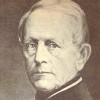If the mind is to emerge unscathed from this relentless struggle with the unforeseen, two qualities are indispensable: first, an intellect that, even in the darkest hour, retains some glimmerings of the inner light which leads to truth; and second, the courage to follow this faint light wherever it may lead.
[So sind ihm zwei Eigenschaften unentbehrlich: einmal ein Verstand, der auch in dieser gesteigerten Dunkelheit nicht ohne einige Spuren des inneren Lichts ist, die ihn zur Wahrheit führen, und dann Mut, diesem schwachen Lichte zu folgen.]
Karl von Clausewitz (1780-1831) Prussian soldier, historian, military theorist
On War [Vom Kriege], Book 1, ch. 3 “On Military Genius [Der Kriegerische Genius]” (1.3) (1832) [tr. Howard & Paret (1976)]
(Source)
(Source (German)). Alternate translations:Now, if it is to get safely through this perpetual conflict with the unexpected, two qualities are indispensable: in the first place an understanding which, even in the midst of this intense obscurity, is not without some traces of inner light, which lead to the truth, and then the courage to follow this faint light.
[tr. Graham (1873)]Now if it is to get safely through this continual conflict with the unexpected, two qualities are indispensable: in the first place, an intellect which even in the midst of this intensified obscurity is not without some traces of inner light which lead to the truth, and next, courage to follow this faint light.
[tr. Jolles (1943)]
Quotations about:
variables
Note not all quotations have been tagged, so Search may find additional quotes on this topic.
The tactical result of an engagement forms the base for new strategic decisions because victory or defeat in a battle changes the situation to such a degree that no human acumen is able to see beyond the first battle. In this sense one should understand Napoleon’s saying: “I have never had a plan of operations.” Therefore no plan of operations extends with any certainty beyond the first contact with the main hostile force.


